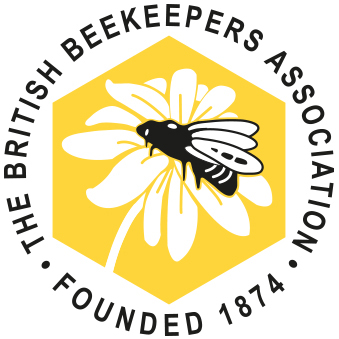

The Database of Pollinator Interactions
The Database of Pollinator Interactions (DoPI) documents British pollinator-plant associations. DoPI unites the disparate publications currently scattered throughout the scientific literature with unpublished reports and databases into a single online depository.
The paper outlining the construction and contents of this database was published in Ecology in 2022. The entire DoPI dataset is available in the Supporting Information. Please cite this paper when using the data in publications and individual studies when appropriate.
The data comprises records of pollinator and plant interactions from the published scientific literature or submitted datasets. The taxonomy of British (native, naturalised and exotic) plant and pollinator species follows those of the National Biodiversity Network. Currently, users may search and filter the stored data via the online interface using five categories: (a) pollinators (groups, common names or taxonomic rank), (b) plants (groups, common names or taxonomic rank), (c) habitat type, (d) location, and (e) date (years, months and months in years). Initially, searches return a table summary. Further details (including date, location, source publication details etc.) can be viewed by selecting entries in the ‘Interaction’ column or downloaded as comma separated values (CSV) files. Data will continue to be added and we welcome any further contributions. Please report factual errors, dubious records, missing data, and web errors to dopi.contact@gmail.com.
DoPI was constructed by Drs Nick Balfour, Maria Clara Castellanos and Chris Johnson, and Profs Dave Goulson and Andrew Philippides of the University of Sussex, with financial support from the British Beekeepers Association and the Eva Crane Trust. We thank our funders and the researchers and organisations who have kindly contributed their data.
Please cite: Balfour, N.J., Castellanos M.C., Goulson, D., Philippides, A. & Johnson, C. (2022) DoPI: The Database of Pollinator Interactions. Ecology, e3801. 10.1002/ecy.3801
Table 1 Details of output in comma separated values (CSV) files available from the Database of Pollinator Interactions. Data are given in 30 columns (Columns A-AD) with headers (Titles) and accompanying notes (Notes).
| Column | Title | Notes |
|---|---|---|
| A | Authors | Publication author(s) |
| B | Title | Publication title |
| C | Journal | Publication journal |
| D | Pub Year | Publication year |
| E | Pub Vol | Publication volume |
| F | DOI | Publication Digital Object Identifier (https://www.doi.org) or, if unavailable, a web address (URL). |
| G | Methodology | Methodology used in data collection. |
| H | Pollinator Survey | Survey effort in data collection (All, Group, Single Species) |
| I | Plant Survey | Survey effort in data collection (All, Group, Single Species) |
| J | NBN Pollinator Code | Pollinator species code from the NBN Atlas (https://nbnatlas.org/) |
| K | Pollinator Species | Pollinator species name from the NBN Atlas |
| L | Caste | Caste or gender of pollinator |
| M | NBN Plant Code | Plant species code from the NBN Atlas |
| N | Plant Species | Plant species name from the NBN Atlas |
| O | Interactions | Number of interactions recorded |
| P | Date | Day of the month of interaction |
| Q | Month | Month of interaction |
| R | Year | Year of interaction |
| S | Grid Letter | Location of interaction. Letters from the Ordnance Survey National Grid reference system (https://www.ordnancesurvey.co.uk/) |
| T | Grid Code | Location of interaction. Numbers from the Ordnance Survey National Grid reference system |
| U | Latitude | Location of interaction given in geographic coordinates |
| V | Longitude | Location of interaction given in geographic coordinates |
| W | Habitat | Habitat type in which the interaction was recorded. Loosely based on those used on the Centre of Ecology and Hydrology Land Cover Map 2007 (https://www.ceh.ac.uk/services/land-cover-map-2007) |
| X | Pollination | Pollination quality of interaction, i.e. effectiveness of interaction to pollinate flower. Based on Ollerton et al. (2018), originally based on Adams & Lawson (1993). 1 - pollination confirmed, visitors with pollen attached and observed to produce pollination of a flower (e.g. transferring pollen to stigmas and/or leading to seed set) 2 - pollination inferred, visitors observed with pollen attached (but not confirmed to transfer pollen to stigmas) 3 - pollination inferred from circumstantial evidence (e.g. visitors observed on flowers, but evidence of picking up pollen is missing) 4 - no pollination, the flower visitor is a nectar or pollen thief, a herbivore, a predator, or a parasite of insects in the flowers |
| Y | Pollen | Pollen collection by pollinator species reported |
| Z | Nectar | Nectar collection by pollinator species reported |
| AA | Record | Dataset unique key |
